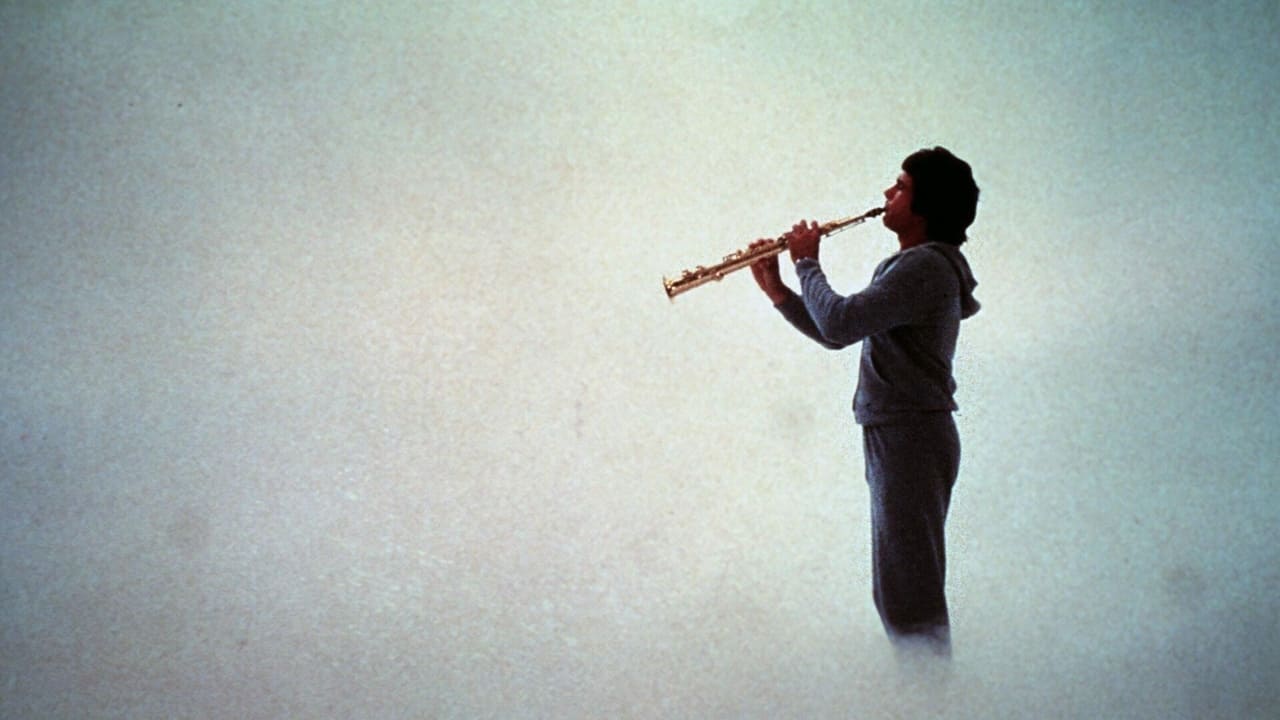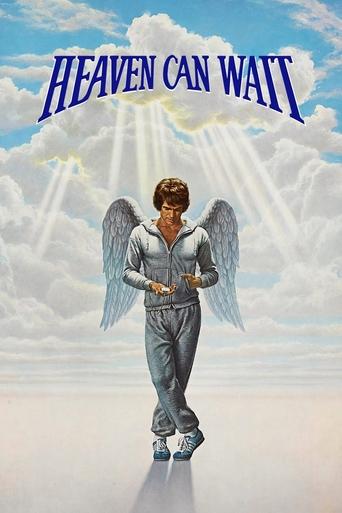

Heaven Can Wait is not a remake of the 1943 Heaven Can Wait, but it is a remake of 1941's Here Comes Mr. Jordan, starring Robert Montgomery and Claude Rains, so if you want to see the original, make sure you rent the right movie. Both films have the same story: a young man is taken prematurely up to Heaven, but since it was a mistake and he wasn't supposed to die for decades, the angel Mr. Jordan sends him back to Earth in another man's body. For the sake of the audience's confusion, the actor stays the same, but it's made clear that everyone else in the movie sees him as the other "new" man. If you think about it, it's really not fair. He may have an extension of life, but he's placed in another man's surroundings, with another man's reputation, house, and wife.Warren Beatty stars in the remake, and while he's more likable and gorgeous than Robert Montgomery, there's still the question hanging above everyone's heads in the movie: Why was this remade? Since the changes are so minimal from the original, and since there are so many other "God made a mistake" movies out there, why was it necessary to make such a direct remake? The two women in Warren's "new" life are Dyan Cannon and Julie Christie, but neither are very easy to root for. Dyan is clearly the villain, and Julie is an outrageous, obnoxious protester, but if you're only in it for the eye candy, you could do a lot worse. James Mason plays the angel Mr. Jordan, and while he adds enormous class and maturity to the film, he's not sufficiently different from Claude Rains to have justified a remake.
... View MoreThis movie was nominated for several Oscars: Best Picture, Best Actor (Warren Beatty), Best Supporting Actor (Jack Warden), Best Supporting Actress (Dyan Cannon), Best Director (Warren Beatty & Buck Henry), Best Writing based on material from another medium (Elain May & Warren Beatty), Best Cinematography (William Fraker) and Best Original Score (Dave Grusin). Bottom line, Warren Beatty was involved with writing, directing, and acting in this very entertaining movie. This was a very good movie, should not to be confused with the 20th Century Fox movie, Heaven Can Wait (1943). The only similarity between these two movies, is that a man was called to a waiting station after dying. From there on, the stories are totally different. Without going into a complete recapping of the movie, the Beatty character seems to have been assumed to be dead in a bicycling accident when an over reactionary "angel" (Buck Henry) took his soul to a waiting station before he was really dead. Once done, it could not be undone and the Warren Beatty character had to take another man's body. It is at this point that the great comedy really starts to take hold, with Dyan Cannon and Charles Grodin knowing that they had killed the man to which Beatty's body is assigned. This is a great movie with a lot of comical overtones----but then so was Here Comes Mr. Jordan (1941), the original movie from which this one was remade.................................. Now that Beatty has retired and I can look back over his movies, I have come to realize his really unique comedic talent: The characters he often did the best were actually fools who took themselves very seriously. Or, at least that is the way that I see him playing real characters like Jack Reed, Bugsy Siegel, and Clyde Barrow as well as fictitious character such as John McCab, George (in Shampoo) and Jay Billington Bulworth (in Bulworth). Note--This personal observation does not take into account those characters that he played who did not appear to be clownish fools, i,e, Bud in Splendor in the Grass.
... View MoreThis movie has the WORST ending of any movie I have ever seen, period. It totally ruins what was up until then a charming and entertaining fantasy movie and makes you want to throw a shoe at your TV for all the time you wasted watching what went before. There is no other way to explain this than to describe the ending, so again , , , SPOILERS BELOW!The ENTIRE movie centers around the effort to find a new body for the consciousness of Joe Pendleton (played by Warren Beatty), a QB for the LA Rams whose consciousness was mistakenly removed from his body many years too soon by a rookie angel who wrongfully assumed that he was about to be killed in an accident. The head angel, played by the great James Mason, takes over and finds the body of a freshly murdered millionaire to host Joe's consciousness temporarily, until a permanent replacement body is found. Eventually, the millionaire is murdered again, and Joe's consciousness is once again left without a home. However, Joe's backup QB for the Rams, Tom, "conveniently" dies during the Super Bowl, and head angel invites Joe's consciousness to inhabit Tom's body before anyone realizes that Tom is dead. Joe's consciousness inside Tom's body leads the Rams to a comeback victory, and is the Super Bowl hero.So far, so good.Then, the viewer gets a giant punch to the gut. The head angel informs Joe that he must return to his duties, and that after he leaves, Joe will have no memories of his life as Joe, or of his time in the body of the millionaire that he temporarily inhabited. He will just become Tom. The End.Huh?!?!? We just spent almost two hours watching a journey to find a permanent home for Joe's consciousness. And at the end . . . Joe's consciousness is totally obliterated for no good reason that is explained to anyone! Heck, if Joe had just died in the accident at the start at least his consciousness would now be in heaven. But after two hours of this movie, it is as if Joe never existed. And if the Tom, the backup QB, really dies and his consciousness is in heaven, then how can Tom's consciousness also still be alive in Tom's body, since the consciousness in Tom's body is now "just Tom," with no more traces of Joe remaining. What was the point of everything that happened in the movie?Answer: Zero. Which, if you are smart, is how much time you will waste watching this abomination.
... View MoreRemake of Robert Montgomery classic "Here Comes Mister Jordan" (Mister Jordan was played by Claude Rains). Here, James Mason is just as good as Rains, if a trifle too smooth. Buck Henry's officious escort, however, is no comparison to Edward Everett Horton, who played the same part with much more vim in the original. Perhaps Henry or Beatty wanted a distinctly different type, but Henry does not come off well.The main story-line goes, in case you don't know: Warren Beatty plays a football player who, at a late age (Beatty was actually 40) finally earns his dream start for the LA Rams football team. Unfortunately a heavenly escort (Buck Henry) removes the football player's soul from his body just before an accident (which he was supposed to survive without injury). So much for free will. In this movie, it's all laid out for us, folks.Beatty's football player is owed a body, after his own is cremated. Mister Jordan, apparently head of this heavenly branch office, shows him several bodies from athletic types on the point of death, but Beatty's character finds fault with all of them.Finally, Mister Jordan brings him to a body on the point of death who is not, technically, an athlete, though he must have a good physique. He's a rich guy whose wife and private secretary are trying to bump him off. Beatty is about to refuse when he suddenly gets the hots for a character played by Julie Christie. So long as the arrangement is temporary, Beatty's character goes along with the gig until a better body can be found.James Mason is excellent, Buck Henry is annoying, Warren Beatty never for an instant makes you believe he's anything but Warren Beatty. Beatty has found his métier with this movie. Always more a movie star than an actor, Beatty did light stuff better than heavy stuff, sort of like a pre-Bond Roger Moore -- though Moore's enunciation was a lot better. Rumor has it Beatty wanted non-actor Muhammed Ali for the part. If that is true, we're probably better off. And the change from a boxer to a football player was good. Who watches boxing anymore? For the rest of the cast, Dyan Cannon is gorgeous, Charles Grodin is weaselly (what else can we want from them?) John Gielgud, who does not appear in this film, is supposed to have said of Ingrid Bergman, who does not appear in this movie, "She speaks five languages and can't act in any of them." One might make a similarly catty remark of Warren Beatty's ex-flame Julie Christie.In "Doctor Zhivago" a decade and a half earlier, Christie merely had to look good on camera while letting Freddie Young's camera-work and Maurice Jarre's music do the heavy lifting. In this movie, Christie's frizzy hairdo can't save her. Apparently Kate Jackson turned down the Christie part. If this is true, it shows that she (or, to be fair, perhaps her agent) had absolutely no head for how to keep her career going after the "Charlie's Angels" jump-start. Too bad. I think Jackson might have been good.The only down side to this movie is the heavily-labored sub-plot. Liberals don't know how to have fun. There always has to be a "message" and the message always has to promulgate liberal dogma. To add to Christie's insanely miserable hair, her character is a rabid environmentalist with some cock-and-bull story of the rich guy destroying something or messing something up with one of his subsidiaries. So, in order to boost unemployment, she is determined to shut him down and be the planet's savior. Hoo-ray.Beatty, brother of the notorious left-wing nut job Shirley MacLaine, co-wrote the screenplay with former comedienne Elaine May; and he apparently couldn't just let it be a cheery little comedy about a dead guy trying to get a rich wastrel's body in shape for the big game after falling for a hottie. No matter how extreme an environmentalist one is (never trust anything ending in -ist), why not just have a sense of fun with a movie once in a while, and let the planet go to Hell for one hundred minutes? Of course, Beatty's next film, "Reds," glorified the founding of one of the most murderous tyrannies in modern human history (hey, kids, lets put on a show glorifying the burning of the Reichstag!) Even considering the very existence of Christie and her character, it's a fun move. And that is all it is. It's no great classic -- but then, neither was the original. Beatty did his take thirty-seven years after the original. It's time for a twenty-first century incarnation.
... View More